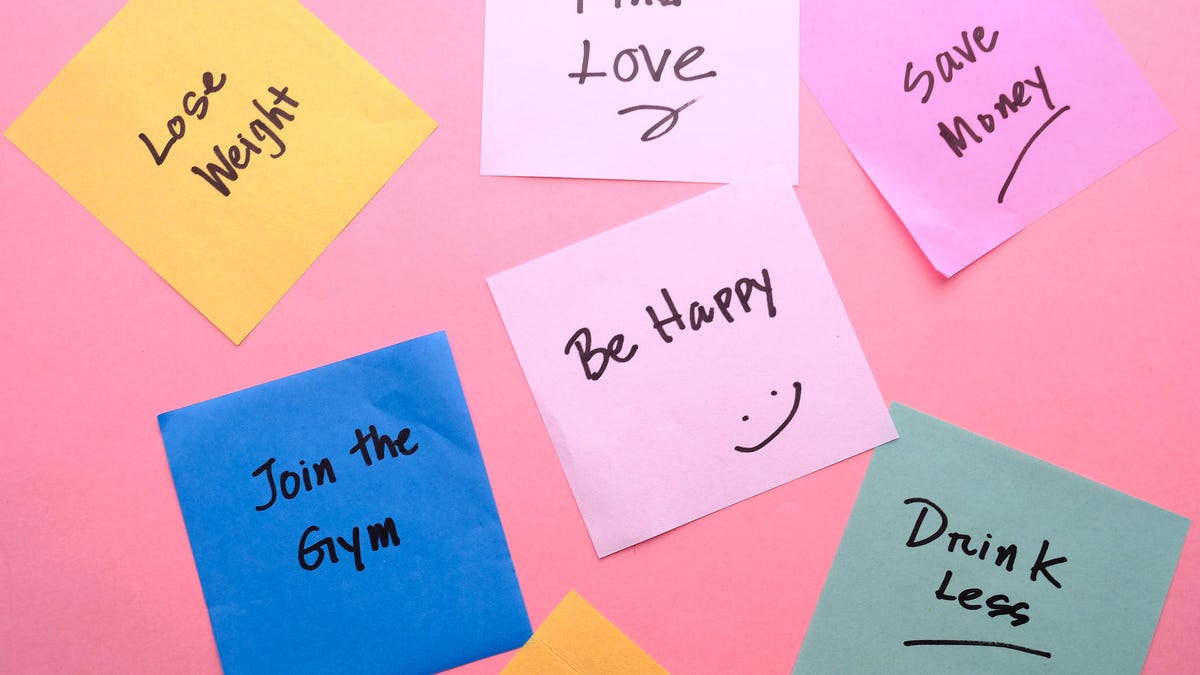2 crucial tips for keeping your New Year's resolutions
Learn the secrets to make your resolutions stick.

You've made it to 2019, and this is the year you exercise more, eat healthier, quit smoking, save more money or some other laudable personal goal.
Except, that's what you said last year and your New Year's resolution didn't make it past Groundhog Day.
This year is different though. We're giving you scientifically-researched advice that can actually help you make those resolutions stick.
Start tiny
What if I told you that doing the bare minimum is the key to keeping your New Year's Resolution?
It might sound too good to be true, but science backs it up. In 2012, Stanford behavioral scientist BJ Fogg gave a TED Talk outlining the simplest and yet (for some people) most effective way to cement new habits.
His philosophy is rather than focusing on a big, vague goal -- like losing weight -- you put your energy towards completing small, easy tasks every single day that add up to making a difference.
In order to do that consistently, you need to:
- Be motivated to do it;
- Have the ability to do it; and
- Find a trigger that reminds you to do it.
Counting on motivation is hard because it can fluctuate every day. Rather than trying to stay motivated to complete a big task, it's easier to find a small one that always feels attainable.
If you want to get fit but have never done a single push-up, committing to do 10 every day will feel daunting or impossible. Instead, try completing one push-up right after getting out of bed each morning. Because it's simple and easy, you'll be able to do it whether your motivation is high or low.
Once you've picked a small habit, you need to attach it to something you already do consistently. Think brushing your teeth, going to the bathroom or taking a shower. This makes your new habit become second nature and, over time, that small change can produce big results.
My favorite example that Fogg gives is flossing just one tooth. It's so easy that I can't talk my way out of doing it, and once I floss one tooth, I'm inclined to floss them all.
You can read more about Fogg's method for changing behavior here.
Keep quiet
Have you already abandoned your New Year's resolution, after making a grand proclamation on Facebook that you would exercise more/eat healthier/quit smoking/save more money?
Telling your friends and family may have been your downfall.
Research shows that when we tell people about the goals we plan to achieve, we get a premature sense of accomplishment that can kill our motivation to actually do the work. Plus, when we fantasize about what life will be like when we meet our goal, we tend to have less physiological and behavioral energy that we need to actually complete it.
That said, getting the support of friends and family can be beneficial, especially when their behavior can impact your resolution -- such as telling a friend you are going to need to skip happy hour to go to the gym.
Instead of making a public announcement about your resolution and getting caught up in how great it will feel when you achieve it, break down your goal into smaller steps and reach out to trusted people in your life who will encourage you.
The CNET Guide to Smart Living: Everything you need to know to live smarter.
Smart Home 101: How to create your own smart home.

